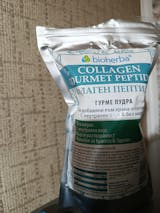- Why winter multivitamins are crucial for immunity
- Physiological changes during the winter period
- Metabolic adaptations
- Circadian rhythms and neuroendocrine changes
- Key nutrients for winter immunity
- Vitamin D: the sunshine vitamin
- Vitamin C and bioflavonoids
- Professional multivitamin formulas for winter
- Criteria for selecting quality formulas
- Synergistic effects and optimal dosing
- Nutrient interactions
- Temporal aspects of supplementation
- Frequently Asked Questions About Winter Supplementation
- Practical guidelines for maximum efficiency
Why winter multivitamins are crucial for immunity
The winter season presents a unique challenge for the human body, requiring adaptation to reduced sunlight, cold temperatures, and increased incidence of respiratory infections. The immune system functions as a complex network of cells, tissues, and organs that require a precise balance of essential nutrients for optimal efficiency.
Vitamin and mineral deficiencies during the winter months are not just a theoretical possibility, but a documented biochemical reality. Reduced exposure to ultraviolet radiation leads to a significant decrease in endogenous vitamin D synthesis, while the limited availability of fresh seasonal produce compromises the intake of water-soluble vitamins.
Physiological changes during the winter period
Metabolic adaptations
Human metabolism undergoes marked changes in response to winter conditions. Thermoregulation requires additional energy expenditure, which increases the need for coenzymes and cofactors involved in cellular respiration. The B-complex vitamins play a critical role in these processes, with thiamine (B1) involved in glucose oxidation and riboflavin (B2) functioning as a component of flavoproteins.
Circadian rhythms and neuroendocrine changes
Shorter days and longer nights disrupt circadian rhythms, affecting melatonin and cortisol production. This dysregulation compromises immune function, as cortisol has immunosuppressive properties at chronically elevated levels. Magnesium and zinc have shown regulatory effects on the hypothalamic-pituitary-adrenal axis.
Key nutrients for winter immunity
Vitamin D: the sunshine vitamin
Cholecalciferol is the most critical nutrient for winter health. Its immunomodulatory function is mediated through the regulation of antimicrobial peptides such as cathelicidin and β-defensins. Optimal serum levels (30-50 ng/ml) are rarely achieved without targeted supplementation during the winter months.
Scientific research demonstrates that maintaining adequate vitamin D levels can reduce the risk of respiratory infections by up to 42%.
Vitamin C and bioflavonoids
Ascorbic acid functions as a primary antioxidant in the extracellular space, protecting cell membranes from oxidative damage. The synergistic effect with bioflavonoids such as quercetin and rutin enhances antiviral activity and stabilizes the capillary wall.
Professional multivitamin formulas for winter
As a leading importer and distributor of over 500 brands of nutritional supplements, our company offers a specially selected collection of multivitamins optimized for the body's winter needs. These formulas contain therapeutic doses of essential nutrients that specifically support the immune system during the cold months.
The collection includes adaptogenic complexes that help the body cope with the physiological stress of winter conditions, as well as specialized formulas with increased content of vitamin D3, zinc and selenium.
Criteria for selecting quality formulas
Bioavailability is a fundamental factor in evaluating multivitamins. Chelated mineral forms demonstrate superior absorption compared to inorganic salts. Zinc picolinate and magnesium bisglycinate demonstrate optimal bioavailability.
| Nutrient | Recommended dosage | Bioactive form |
|---|---|---|
| Vitamin D3 | 2000-4000 IU | Colecalciferol |
| Vitamin C | 500-1000mg | Buffered form |
| Zinc | 15-30mg | Zinc picolinate |
| Selenium | 100-200 mcg | Selenomethionine |
Synergistic effects and optimal dosing
Nutrient interactions
The complex biochemical interactions between vitamins and minerals require careful balancing of formulas. Vitamin E potentiates the antioxidant activity of vitamin C by regenerating the ascorbyl radical. Similarly, selenium functions as a cofactor for glutathione peroxidase, enhancing endogenous antioxidant systems.
Temporal aspects of supplementation
Optimal multivitamin intake requires consideration of circadian rhythms and digestive processes. Fat-soluble vitamins (A, D, E, K) demonstrate improved absorption when taken with lipids, while iron is most effectively absorbed on an empty stomach in the presence of vitamin C.
Frequently Asked Questions About Winter Supplementation
How long should winter multivitamins be taken?
The optimal duration of supplementation covers the entire winter period, starting from the end of October and continuing until the beginning of April. This time frame corresponds to the period of reduced sun exposure in temperate climates.
Can multivitamins replace a balanced diet?
Dietary supplements function as complementary support, not as a substitute for a varied diet. The synergistic effects of phytonutrients, fiber, and bioactive compounds from whole foods cannot be fully replicated in isolated preparations.
Practical guidelines for maximum efficiency
A personalized approach to winter supplementation requires consideration of individual factors such as age, gender, health status, and lifestyle. Elderly people demonstrate reduced gastric acidity, which compromises the absorption of vitamin B12 and iron.
- Take multivitamins with food for improved tolerance
- Avoid simultaneous intake with coffee or tea due to tannins
- Store the preparations in a cool and dry place.
- Consult a doctor if you have any chronic illnesses.
Quality winter supplementation is an investment in long-term health and vitality. By integrating science-based multivitamin formulas into our daily routine, we can optimize immune function and maintain energy levels during the challenging winter months.

















